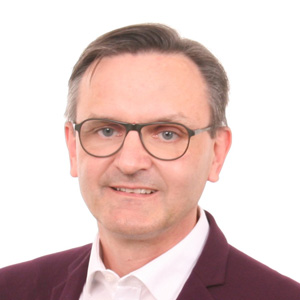How an evidence-based physiotherapy practice dissemination project adapted to battle the COVID-19 infodemic
Adapting a physiotherapy evidence-based practice dissemination project to face the infodemic head on: how it all began
Our original idea was to launch a coordinated action to disseminate evidence-based physiotherapy practice in Poland. We had planned to engage people and institutions to build a platform for sharing ideas and materials in real time. In late 2019, we applied for a grant from the Societal Duty of Science program of the Ministry of Science and Higher Education of Poland – and we got it! This is how the project ‘PRO-EBP’ (evidence-based practice; a platform for the promotion and dissemination of professional practice based on scientific evidence) began.
We built a collaboration between The Józef Piłsudski University of Physical Education and The Polish Chamber of Physiotherapists (a national professional body representing over 70,000 of Poland’s physiotherapists), with the support of the Physiotherapy Evidence Database, PEDro. This is the first cooperation of its kind aimed at knowledge translation and dissemination among physiotherapists in Poland.
Back then, we definitely did not expect a pandemic and the events that would change our lives so much. We began preparing educational and practice materials on research methods, designs and article types; a glossary of EBP-related terms; a book on EBP; guideline summaries; and exemplar EBP curricula. To engage students, we invited them to the PEDro preparations and the activities for the Students4BestEvidence initiative. We invited all Polish physiotherapists to participate in a survey and planned to conduct focus group studies on their EBP profiles. We trained leaders and students. In cooperation with, and with substantial help from Professor Anne Moseley from PEDro, we prepared a Polish translation of the PEDro website – the 13th language version of PEDro.
We then launched a dedicated website to disseminate the PRO-EBP project. We started to build an international, science-to-practice co-operation. And then…
What happened next: addressing the problem
Then the pandemic started.
While reading and studying papers, as well as listening and talking to people, we realised that a culture of evidence-based healthcare was becoming even more crucial. We observed academic efforts to overcome the coronavirus, as well as the growing threat of the infodemic. We accessed emerging sources of evidence-based information, such as living systematic reviews and rapid guidelines. But we also observed the unprecedented flood of publications.
The outbreak of the pandemic, the resulting clinical health and care needs, public needs, and the explosion of conspiracy theories, which have also influenced our field, inspired us to use the project to communicate and translate science at this critical time.
Polish physiotherapists are widely involved in acute, long- and post-COVID care, and are authorised to administer vaccinations. They influence public opinion, and their knowledge and understanding of COVID-19, vaccinations and the infodemic are crucial in terms of communicating science. Free and easy access to trustworthy and reliable sources of information is crucial to promote responsible attitudes, decisions and behaviours.
What is in our hands and what we are doing now
We know that the key elements are communication channels that allow us to quickly reach many people, including physiotherapists and policymakers, as well as our patients and clients. On average, the Polish Chamber of Physiotherapists receives about 69,000 visits per month, with peak views in March 2020 reaching 220,000 visits – the highest ever recorded. The organisation has over 31,000 Facebook followers. This demonstrated that we have the capacity to reach every physiotherapist in Poland (over 71 000 people).
We adapted the planned dissemination topics and produced some plain-language articles on COVID-19, which were widely and freely distributed. These included the effectiveness and safety of vaccines, and an explanation of a living systematic review on COVID-19 medications.
Some of our papers on EBP and COVID-19 include:
https://glosfizjoterapeuty.pl/?s=p%C5%82aszewski
https://glosfizjoterapeuty.pl/?s=covid
We are in the process of preparing a live meeting on Facebook, and a Facebook fan page to join the World EBHC Day initiative.
Lessons learned and next steps
The methods and tools of implementation science and knowledge translation are not routinely used in Poland. We are trying to adapt best practices to our local context. We are aware that our initiative may be imperfect. Nonetheless, we do think that we need to overcome this vicious cycle of not knowing or understanding, and not taking action to change attitudes and behaviours.
Physiotherapists in Poland have historically been dismissive of EPB and have ignored the science. This is one element that has motivated us to take part in World Evidence-Based Healthcare Day. We look forward to being part of an initiative that reinforces the importance of evidence-based healthcare and the benefits it gives to all.
References
Maciej Płaszewski1, Weronika Krzepkowska2,3, Marcin Starzak4, Zbigniew Wroński5
1 Department of Rehabilitation, Faculty of Physical Education and Health in Biała Podlaska, The Józef Piłsudski University of Physical Education, Warsaw, Poland
2 Department of International Cooperation, The Polish Chamber of Physiotherapists, Warsaw, Poland
3 World Health Organization, Warsaw, Poland
4 Faculty of Physical Education and Health in Biała Podlaska, The Józef Piłsudski University of Physical Education, Warsaw, Poland
5 Department of Rehabilitation, Warsaw Medical University, Warsaw, Poland
We believe the project is the beginning of a movement towards better practice. Evidence-based healthcare, implementation science and knowledge translation need to be popularised and implemented to improve health and well-being and to continue to develop physiotherapy.
Disclaimer
The views expressed in this this World EBHC Day Blog, as well as any errors or omissions, are the sole responsibility of the author and do not represent the views of the World EBHC Day Steering Committee, Official Partners or Sponsors; nor does it imply endorsement by the aforementioned parties.
